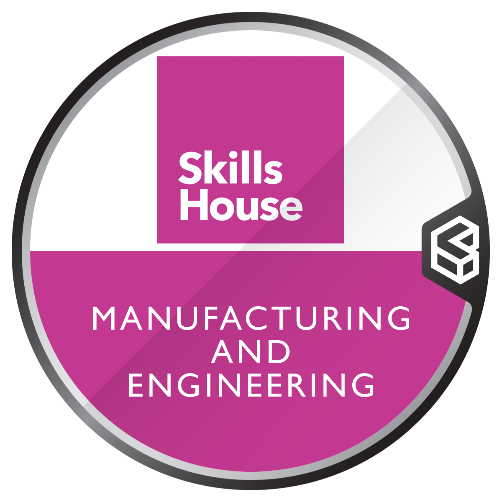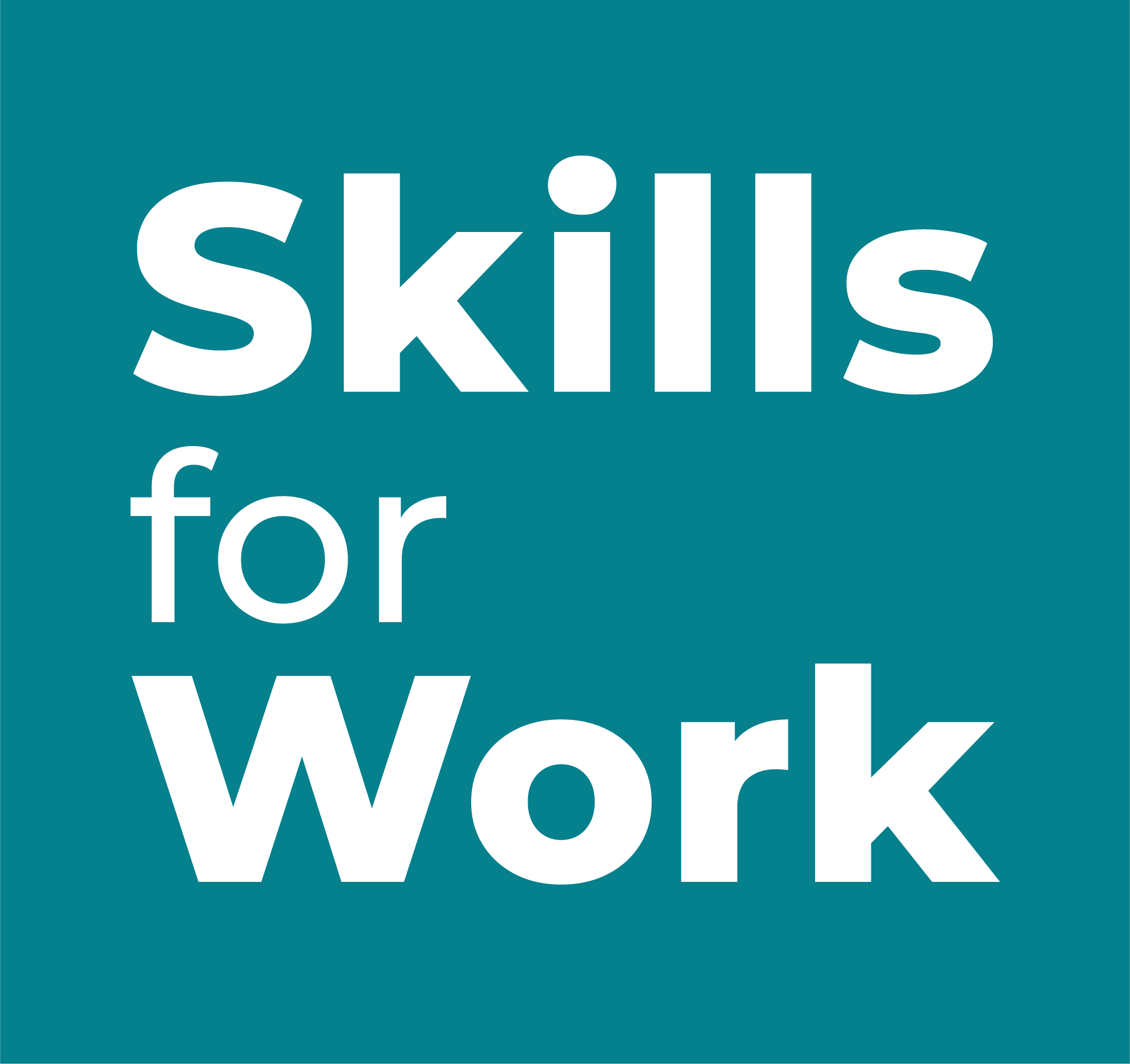Introduction
Our Industry guides give you the lowdown on what the Bradford District has to offer. They're here to help you figure out what qualifications and training opportunities are available nearby and to give you the scoop on career options in specific industries.
If you're not sure about what careers are out there, these guides are perfect for exploring and getting to know each sector better. They're your go-to for understanding the different paths you can take into a career, whether it's through Apprenticeships, Traineeships, starting out early in your career, going to college or university, or learning on the job.
In Bradford District, there are 15 industry sectors to explore - you can find them all on the Career Options page. Each guide will tell you specific ways to plan for an occupation, as well as suggesting educational and vocational opportunities.

Build a Career in the Manufacturing & Engineering Industry
When it comes to a Career in Manufacturing and Engineering, you should have a keen interest in any of the following:
- Solving practical problems
- Analysing information
- Mathematics
- Technology
You may be familiar with the acronym STEM (Science, Technology, Engineering and Mathematics), or indeed studying subjects that are closely related to these areas.
There is a common, outdated misconception that manufacturing and engineering roles involve getting dirty and that most businesses are male-oriented. While this may still be the case in a handful of instances across Bradford and District, the truth is that many manufacturing and engineering companies are housed within state-of-the-art facilities, centered at the cutting-edge of technology and employee diversity. There is an enviable talent pool of people with transferrable skills within this industry. If you feel you have the skills to prosper within this sector, fantastic, keep reading!
The manufacturing and engineering sector produces goods that make improvements to our lives. Engineering roles generally tend to fall into four major categories: chemical, civil, electrical and mechanical. However, it is believed that over 60,000 jobs will be created in the UK between now and 2025 in the field of additive engineering and manufacturing, as 3D printing skills will be seen as vital within the Manufacturing and Engineering industry.
A wide range of opportunities in the Manufacturing and Engineering industry are available:
• Engineers
• Material Scientists
• Robotic Engineers
• Civil Engineers
• Research & Development
There are many great companies across Bradford and District that have made a difference to the world of Manufacturing and Engineering, paving the way within industries such as Passenger Transportation, Marine, Aerospace, Defence, Rail, Oil and Gas.

Qualification Information
Some of the skills and knowledge you will gain from your GCSE studies will be particularly useful to a career in Manufacturing and Engineering. We can't list every one, but some examples are below:
English Language
- Reading comprehension
- Team collaboration
- Critical thinking and analysis
- Logical reasoning
- Research skills
English Literature
- Communication skills
- Technical and analytical writing
- Evaluating arguments
- Ethical and societal awareness
Maths
- Solving equations
- Geometry and spatial reasoning
- Statistics and probability
- Logical thinking and problem solving
Science
- Understanding systems and models
- Ecology and ecosystems
- Data collection and analysis
Computer Science
- Programming basics
- Networks and the internet
- Data analysis and visualisation
- Simulation and optimization
Design and Technology
- Technical skills
- Evaluation and testing
- Material science
- Professional skills

Courses in Manufacturing & Engineering
There are several different courses available which will help you to get a job in Manufacturing and Engineering, examples of those currently available locally are below:
Product Innovation, Design & Development:
- Engineering - Design and Development T Level Bradford College
- MEng (Hons) Architectural Engineering University of Bradford
- BEng (Hons) Mechanical Engineering University of Bradford
Health Safety & Environmental Assurance:
- MEng (Hons) Biomedical Engineering University of Bradford
- BEng (Hons) Chemical Engineering University of Bradford
Logistics, Process Control & Development:
- Engineering Operations Level 2 Diploma Keighley College
- Advanced Manufacturing Engineering Level 3 Keighley College
- BEng (Hons) Mechanical Engineering University of Bradford
Manufacturing & Engineering Production:
- Fabrication and Welding Level 2 Keighley College
- Advanced Manufacturing Engineering Level 3 Keighley College
Maintenance and Installation:
- Motor Vehicle Skills Entry Level 3 Bradford College
- Vehicle Maintenance Level 1 Keighley College
- Safe Maintenance of Electric and Hybrid Vehicles Level 2 Keighley College
- MEng (Hons) Civil and Structural Engineering University of Bradford

15 Career Choices in Manufacturing & Engineering
The below jobs are an example of what work can be found in this sector in the Bradford District and beyond. Click on the job title for more information:
- Product Designer - create new products and improve existing ones
- Lightning Technician (Gaffer) - set up and operate lighting for concerts, conferences and theatre, or in film and TV productions
- 3D Printing Technician - manufacture products, including biomedical implants, car parts, aerospace components and fashion accessories
- Wind Turbine Technician - maintain and repair wind farm turbines on land and at sea
- Heating and Ventilation Engineer - install and service heating and air conditioning in large buildings like factories, schools and hospitals
- Engineering Craft Machinist - use lathes, cutters and grinders to make parts used in manufacturing and engineering
- Robotics Engineer - design and build machines to do automated jobs in industries like manufacturing, aerospace and medicine
- Civil Engineer - design and manage construction projects, from bridges and buildings to transport links and sports stadiums
- Energy Engineer - research, design and build power generation plants, and work in the oil and gas industry
- Computer-Aided Design (CAD) Technician - use software to design buildings, machinery, goods and components
- Analytical Textile Technologist - produce technical textiles for industries like automotive, aerospace and healthcare
- Chemical Engineer - develop ways to turn raw materials into everyday products
- Electronics Engineer - design and develop systems for industry, from mobile communications to manufacturing and aerospace
- Laboratory Technician - support scientists and help carry out tests, research and investigations
- Materials Engineer - research the behaviour of materials used in industry to make them stronger, lighter and more hard-wearing

Useful Resources
Find below some useful websites giving information about working in this sector.
WISE – Women and Girls inspiring STEM Excellence
The Science, Engineering, Manufacturing and Technologies Alliance
Make UK – The Manufacturer’s Organisation
Women in Science Engineering Technology
NHS Health Informatics Careers

Skills Statements
Our skills statements are like golden nuggets crafted by industry pros. They pinpoint the essential skills required in specific sectors or careers. These statements are your secret weapon to understanding what employers really want and figuring out how to shine brighter than the rest. They'll give you the inside scoop on the skills that will make you stand out from the crowd.
Follow this link to find the Skills Statements for:
Health, Safety & Environmental Assurance

Digital Badges
Digital badges are a great way to gain recognition for skills and learning which doesn't have a qualification attached to it. If you are a learner aged 13+ please sign up to our Navigatr platform to access the digital badges we offer.
This is quick, easy and free to do. Follow the link below to create your own Navigator account and earn your first digital badge by reading the information and completing quiz at the bottom of the page:
https://www.navigatr.org/what-are-digital-badges-2
To see some of the badges available for Bradford District click on the link below for more information:
Engineering helps to produce things that improve our lives, and falls into the following categories: • chemical (from textiles to DNA) • civil (from railways to ecosystems) • electrical (from digital to power) • mechanical (from spacecraft to solar panels) Manufacturing is all about making things. Smartphones and electric vehicles have to be manufactured, along with all their smaller components. In fact, anything that needs to be produced in large quantities is part of manufacturing and engineering production. Medicines, new materials, food products, make-up and clothes have to be manufactured too - basically every man-made object!
I would like to find out more about…
Developing new or existing products can make a massive improvement to our world. For example, planning to use smarter, recycled materials can lower a business’ carbon footprint and create a much more environmentally-friendly product.
People in this pathway ensure equipment in the workplace is safely used in line with environmental and health and safety regulations. This benefits the wider community when emphasis is placed on controlling air and noise pollution.
In a similar vein to pathways within the transport, distribution and logistics sector, process control plans out the effective flow of goods from manufacturing facilities to customer usage.
Once a product is installed, people with careers in this pathway must also ensure it is maintained on a regular basis and falls in line with specific regulations that have been set out in legislation.
Before a product leaves a workplace, they must be quality assured, ensuring that company and national standards are met before they are distributed effectively and sold to the public.


